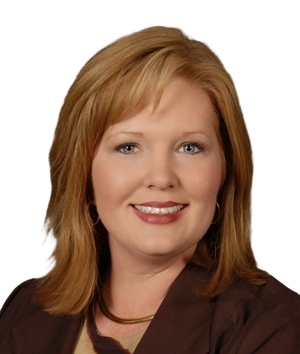Table of Contents
Jennifer Womble, Program Chair for the Future of Education Technology Conference® (FETC®), is excited about the conference this year. She looks forward to attendees experiencing the city’s unique culture as part of the backdrop to this year’s conference. More importantly, she’s proud to involve members in conference programming, which includes field trips for attendees to visit schools and student music performances.
Creating Real-Life Interests
Data evaluation is part of the conference prep process and Womble is proud of how FETC is continuously trying to build the very best professional development to meet the needs of all districts. “We do a lot of research on what we have offered in the past. We analyze what content people are going to see. We do surveys and a lot of in-person interviews,” she says. She spent the spring interviewing superintendents about what technology needs were happening across the country and used that information to alter FETC programming to meet the real-life interests of school districts.
“This year, we saw a huge increase in school districts’ understanding educators’ need for on-site training and the need for ‘just-in-time’ mentoring on campuses. There’s been a big movement in education to include more coaching. We see instructional coaching, technology integration specialists, technology coaches, and reading coaches. And it’s really exciting because, in education, mentors are making a big difference in student learning on campus and teachers can practice strategies.”
New Tracks & Coaching
FETC has built new tracks around coaching that will be unveiled as part of the summit pre-conference, in addition to a new track for librarians and media specialists, based on feedback from past attendees. The role has been evolving in school districts over the last 10 years. As Womble points out, “In some schools, they might be known as the ‘librarian,’ but in other schools, they’re the ‘director of the maker space.’ In other schools, they’re the ‘IT person.'” These educators have a significant impact on technology choices and curating of resources.
Womble is excited to see that people are spending time in sessions, as well as on the Expo floor. FETC is a conference that brings the convergence of innovation and information to help provide a solid background of knowledge and build overall skills. “Superintendents tell me that they send faculty to our conference to learn how to use products in their district,” she says. “They also learn how to master them and integrate them into their classroom. They want to see a return on investment.”
Finding the Right Partner
This year’s conference will feature keynotes from Daniel Pink and Justin Shaifer. The challenge in choosing keynotes, according to Womble, is finding speakers who can address the changing culture in education, speak about increased innovation, and offer useful feedback, that are attributes shared by both individuals. “Daniel Pink really was the perfect fit because he talks a lot about human behavior and has done the research and brings a lot of that research to site. Whether you’re an administrator, educator or coach, there are pieces of all of his books that can be employed in education to boost student performance, give better feedback, improve motivation, curiosity, and autonomy.”
Shaifer is an up-and-coming keynoter whose story resonates with many students. As Womble explains, “He taps into what’s happening with young people and helps those in education reflect on what happens inside the classroom that builds curiosity. [He understands] how to engage students and the way STEM propels all students into future careers.”
Subscribe to edCircuit to stay up to date on all of our shows, podcasts, news, and thought leadership articles.



